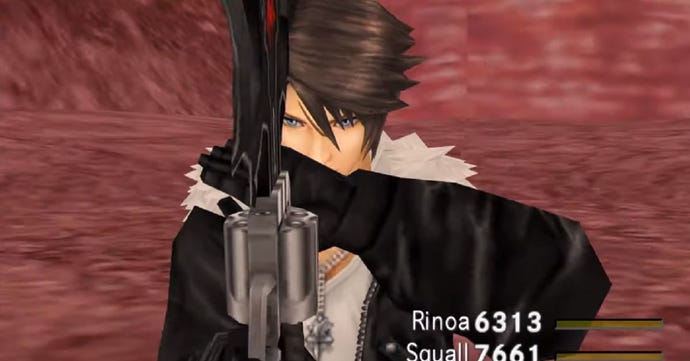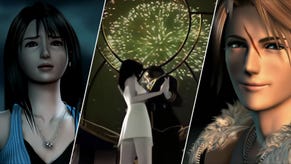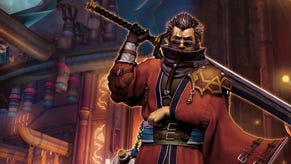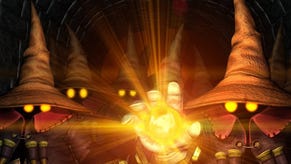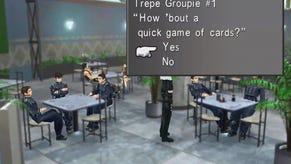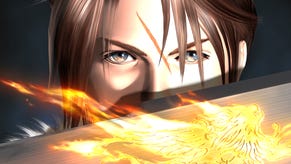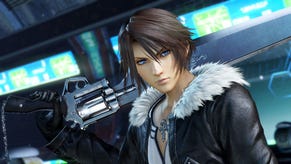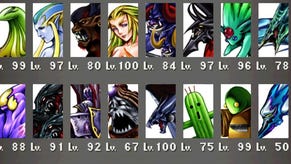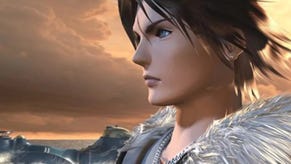Final Fantasy 8 is a bizarre masterpiece - and playing the remaster reminds it'd make just as good a remake as FF7
We're all pumped for Final Fantasy 7 Remake, but playing the newly released Final Fantasy 8 Remaster reminds how that game would be just as worthy of a fully-fledged remake.
Of that golden age run of FF6 through to FF10, FF8 is probably the least talked about of the bunch. It's by no means a failure - it's actually one of the better selling of the group and is beloved by many - it just hasn't got that same oomph. It doesn't have the childhood-defining significance that 6 has to many, nor the cultural impact of 7. It's not the critical darling of 9, and neither is it the technical revolution of 10. It is the middle child. After two wildly successful and surprisingly similar games in the sixth and seventh entries, this is the creators of those games trying to break free into something different - and it's magical.
If it's the best is a matter that's plainly up for debate, but Final Fantasy 8 is definitely the most mechanically interesting title in the series, up there with the excellent Final Fantasy 12 International Zodiac Job System (recently released in the west as FF12: The Zodiac Age). Where FF12 is a work of intricate genius, a finely crafted Swiss Watch with nary a flaw in its many gears and cogs, FF8 is glorious chaos. It still has the intricacies of a luxury watch in its deep, rewarding RPG mechanics, but it's also a system that the player can take a sledgehammer to - yet it somehow bears the weight of the blow. It somehow still works.
I say it still works, but Final Fantasy 8 is at its best when you break it. Within a few hours of starting the game, you can make it so that random encounters never happen, or make enemies turn into trading cards. This has a knock-on effect: rather than a traditional level-based difficulty curve, FF8 has adaptive difficulty. This means you can totally fight the final boss at level 9 - the antagonist will simply be scaled to be an appropriate challenge for the level.
Triple Triad, the brilliant card game that somehow inexplicably hasn't been turned into a Hearthstone style stand-alone, isn't just a fun distraction either: it's key to the entire game. You'll be winning cards in matches, turning enemies into cards or even deliberately losing cards to certain NPCs in order to force new ones to spawn elsewhere in the world. All of this isn't just in the service of an extremely good card game, but also intricately linked to the game's RPG progression, where cards can be transmogrified into key items that are then used for weapon upgrades or stat boosts for your friendly summon monsters. We've got a guide for Final Fantasy 8 Triple Triad cards right here, actually.
Pretty quickly it all gets rather ridiculous. It's easy to tune out in the early hours of FF8 as it bombards you with lengthy tutorials about "taking care of your GF", "junctioning magic" and even taking in-game exams. It is definitely a rival for the most obtuse and impenetrable game in the series alongside FF2's insane character progression system. You should stick with it, though - if you give the game a chance it pays back in spades with a deeply rewarding, interesting, and eminently breakable game.
When people talk about Japanese-made RPGs, especially Final Fantasy, the focus tends to be on the story and characters. This is with good reason, as that's a developmental focus of these titles also - but FF8 represents what the genre can be when it's more systems-focused. It can be wild. FF8 is a game where your character level can remain static but everything around you grows ever-more ridiculous - characters clambering to have thousands of hit points with automatic haste and counter attacks all while remaining technically weak and low-level. Remove the attached Guardian Force and the attached super soldier shrinks to a weak teenager once more, however - something which has interesting thematic implications also.
Speaking of theme and narrative, FF8's uniquely broken systems also serve those who want to focus on it: grab Diablos, grind AP for Enc-Half and Enc-None abilities before leaving for Timber and then enjoy an encounter-free game, soaking up the story and only participating in boss fights. The level scaling also means that while those bosses will get challenging, you'll never get unfairly crushed simply for not grinding enough. If you just want to experience the trying life of Squall (who, by the way, is one of the series' best and most relatable protagonists despite an unearned reputation of a whiny teen), you can do so without loads of the usual RPG padding. This game has added fast forward and encounter-stopping cheats, but the truth is that FF8 is pretty much the only Final Fantasy game where, with a little bit of optimization, you don't actually need such tools.
The fascinating thing about Final Fantasy 8 is that much of this probably wasn't deliberate. In the wake of the monster success of FF7, a Square with boundless money and ambition to match decided to throw pretty much everything at the wall just to see what might stick. The result is a crazy game both narratively and mechanically. You play a mercenary school kid whose teacher wants to date him who eventually goes to space, and there's a hilarious howler of a plot twist that relates to pretty much every main member of the cast around halfway through. There's also seemingly endless numbers of progression and growth systems, all interlinking in fascinating, unexpected and often exploitable ways.
FF8 doesn't seem like a game that's broken by design, but rather by coincidence. But, y'know, the combo system in Street Fighter 2 was also a coincidence at best and technically a bug at worst. It was still a work of accidental genius that went on to define a whole genre. FF8 is a lot like that, except a lot of its ideas never really caught on.
The new remastered version isn't a perfect way to experience the game, but it's certainly a better run than the first attempts Square Enix had with FF7 and FF9. The release is a firm reminder that FF8 is well worth experiencing, however - and it also makes one think deeply about Final Fantasy 7 remake.
We all know why FF7 is the one being remade. It is Star Wars. It is Harry Potter. It is, god, I don't know, American Idiot. It's seminal. Iconic. It defines a subculture and a generation. But when you look at that golden age era of Final Fantasy more objectively, I have to admit that the game I'd most like to see adapted into modern form would actually be FF8. How FF7's systems translate was always pretty obvious - while FF8 is crazy enough to be a mystery. It'd be worth it just to see how some of the mad s**t in it would work in a more modern game. At least we have the remaster, which is as gloriously broken as ever.
